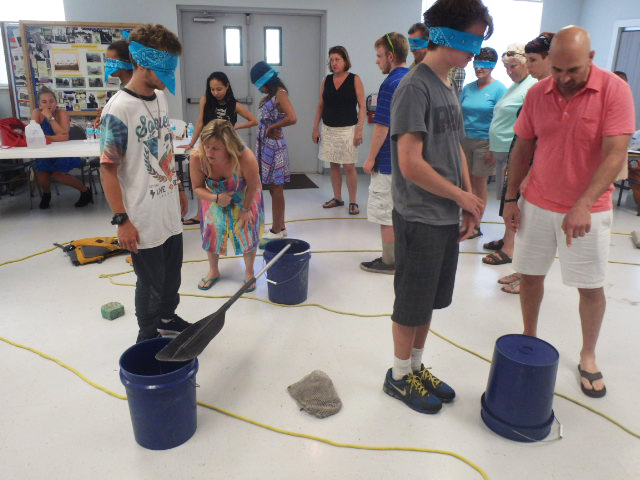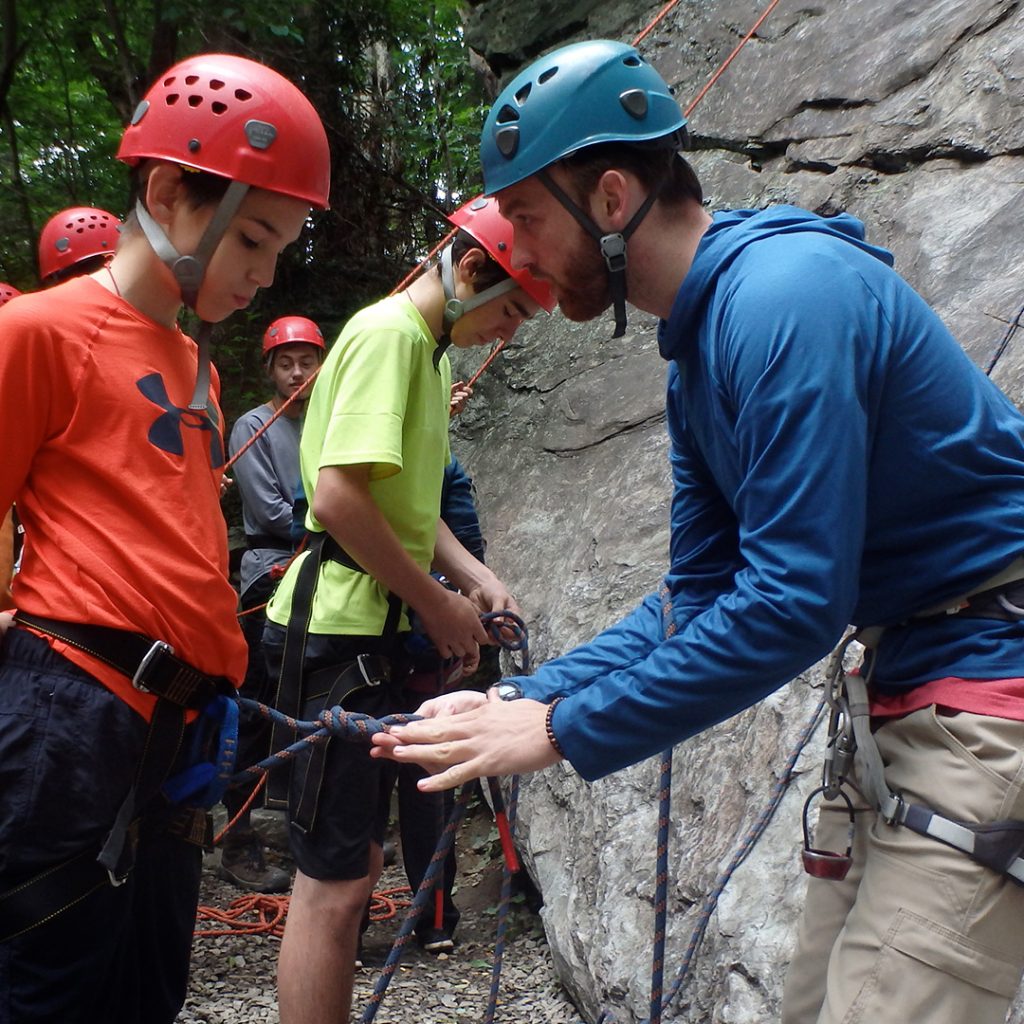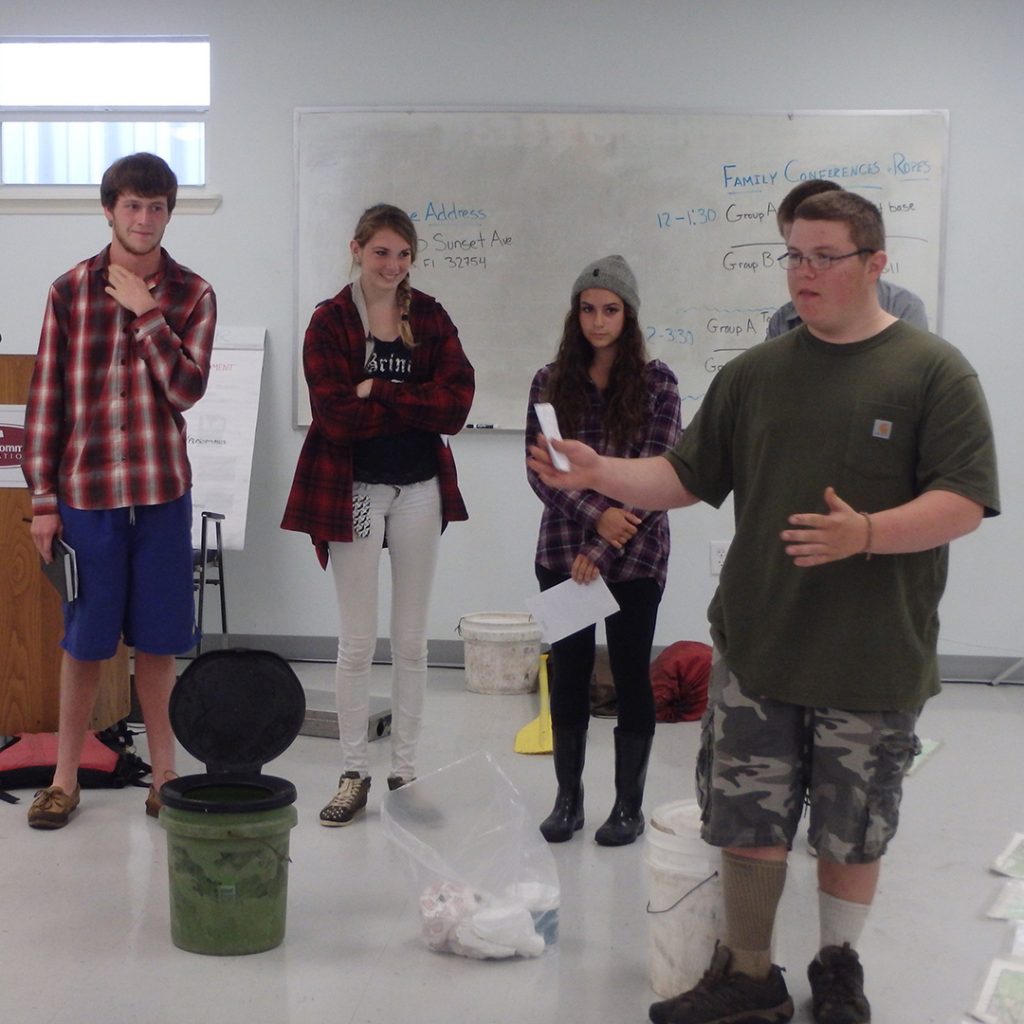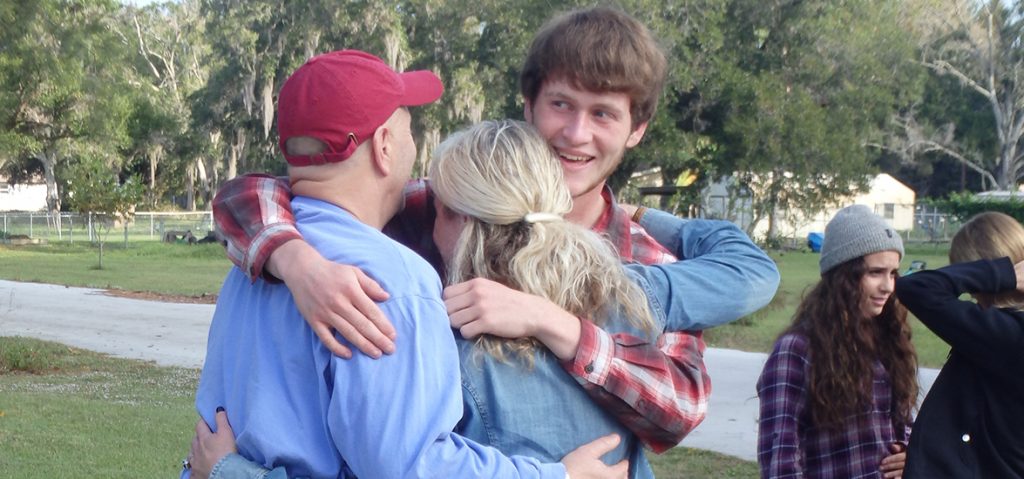An Intercept course doesn’t end when the tents are aired out and the campfire soot is washed off the pots and pans. An Intercept course concludes when a student and their family reunite for an honest conversation. This conversation is called a family conference and it gives your family insight into your child’s expedition experience, the lessons they learned and the goals they’ve set for home. The conference is your opportunity to hit the reset button as a family. The four weeks you’ve spent apart have undoubtedly been challenging for both you and your teen. Separation, though it can be hard, can also lend valuable perspective. The family conference may sound nerve-wracking or awkward right now, but many families find the neutral setting and presence of other families navigating similar circumstances to be unexpectedly comforting.

The conference helps the entire family transfer the experience into a model for everyday life.
Time Apart Is Time To Reflect And Reassess
The Intercept program provides parents with a workbook while their teen is away. The workbook presents opportunities to reflect on where your family has been and where you would like to go, and outlines some of the core lessons Instructors are teaching students in the wilderness. Near the end of the expedition as the teens travel through the wilderness to reach the family conference, you will travel to meet them. The few days together at the trip’s end gives you a chance to reconnect before peers, school and social media come rushing back into your teen’s life. It’s designed to feel deliberate—everyone has done work to get here, and as a parent, that is a huge investment to make in your child.
Preparation for the family conference, and the work that goes into it, begins in the wilderness. At the point your teen is farthest from home, they may feel closer to it than they have in a while. Family information gathered during the enrollment process helps Instructors and students identify areas of strength and for growth. Traveling in the backcountry gives teens an opportunity to build healthy habits and set goals without the distractions of screens and friends at home. As much as possible, behaviors seen in the woods, whether positive or unhealthy, are connected to their counterparts at home. “I noticed you seemed reluctant to speak up and ask the team for help while navigating with the map today,” an Instructor might say. “Do you feel like you have a hard time with that at home, too?”

During the course, Instructors facilitate activities that build teamwork, communication and conflict resolution skills; helping students set goals and make better decisions; and encourage each student to find the leader within themselves.
At the course end, you have the opportunity to see your teen in the context of their expedition family—the strangers who have eaten together, worked together and slept under the same tarp or tent for three and a half weeks. Teens are given the opportunity to share stories from their expedition with their parents. Instructors take time to teach relevant lessons to parents in similar ways that were taught in the wilderness. These lessons provide your family with common language for better communication, feedback and conflict resolution tools that teens learned during their expedition.
The Family Conference
The family conference conversation is future-focused. The goal is to develop a plan with clear guidelines for your child’s return home. The teens, as a group, planned each day’s tasks and goals, gave and received feedback, and took ownership for their role in the successes and failures of the expedition. The family conference mimics this level of communication between teens and their parents. Instructors are present to facilitate the conversation, provide observations from their experience on course, and to create a document of the conversation for the family to take home.
Just as it is difficult for one person in a crowd to stop or move in the opposite direction, it is difficult for one person in a family to move in a different direction. The conference gives everyone in the family a chance to decide on a new direction together. Teens share what they’ve learned and receive validation for any choices they’ve made to move in positive directions. You can share with your child what you’re proud of, what new habits you would like to help them continue at home, and what you’ve learned or been reminded of while they were away.
The family conference is a starting point and an ending point. It can feel like a clean slate and a new start for a family after 28 or 50 days of separation. Parents and children alike have had time to think about actions for which they would like to take ownership. The ability to own a mistake and commit to doing better is a mature action for a teen, and an incredibly humbling one as a parent.

Photo shows Intercept students during the family conference on an Intercept Blue Ridge Mountains Backpacking & Rock Climbing course.
You Make An Intercept Experience Successful
No family will step out of their conference with all of their problems solved. No teen will arrive home fixed. Teens can own what they might have done differently in the past, or wish to do differently in the future. Or they can own that they’re still struggling to decide what to do. If everyone at the table can commit to the importance of their relationships, then together, as a family and a team, you will work toward common goals. You’ll make a plan to check in with each other about progress, boundaries and consequences and to celebrate accomplishments.
A successful family conference will identify how you as a family can work to keep the expedition alive—how to help your teen transfer their successes and strengths home. By showing up at your child’s course end and celebrating their accomplishments with them, you can bear witness to the determination and strength it took to complete the expedition, the patience it took to deal with their teammates, and the courage it took to ask for help.

Families walk away with new problem-solving tools, fresh optimism and a plan for success.
About the Author
Renee Igo was an Outward Bound student at age 15, and has been instructing wilderness expeditions for the Voyageur Outward Bound School for the past eight years. When not instructing, she holds a variety of other teaching positions and raises sheep in Maine.




